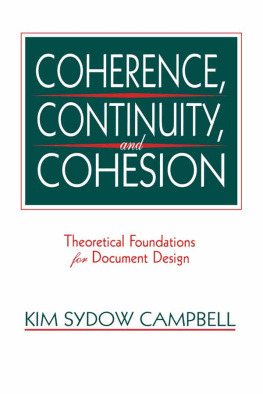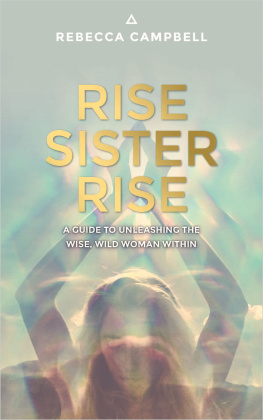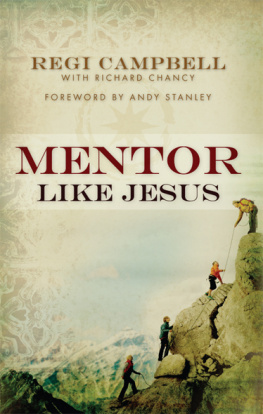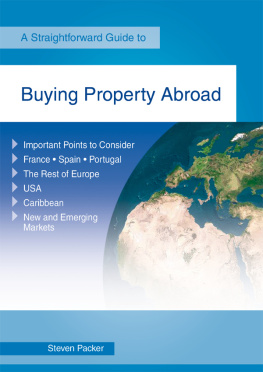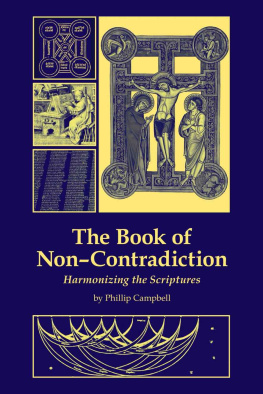Campbell - Conjuring Property
Here you can read online Campbell - Conjuring Property full text of the book (entire story) in english for free. Download pdf and epub, get meaning, cover and reviews about this ebook. City: Amazon River Region, year: 2015, publisher: University of Washington Press, genre: Politics. Description of the work, (preface) as well as reviews are available. Best literature library LitArk.com created for fans of good reading and offers a wide selection of genres:
Romance novel
Science fiction
Adventure
Detective
Science
History
Home and family
Prose
Art
Politics
Computer
Non-fiction
Religion
Business
Children
Humor
Choose a favorite category and find really read worthwhile books. Enjoy immersion in the world of imagination, feel the emotions of the characters or learn something new for yourself, make an fascinating discovery.

Conjuring Property: summary, description and annotation
We offer to read an annotation, description, summary or preface (depends on what the author of the book "Conjuring Property" wrote himself). If you haven't found the necessary information about the book — write in the comments, we will try to find it.
Conjuring Property — read online for free the complete book (whole text) full work
Below is the text of the book, divided by pages. System saving the place of the last page read, allows you to conveniently read the book "Conjuring Property" online for free, without having to search again every time where you left off. Put a bookmark, and you can go to the page where you finished reading at any time.
Font size:
Interval:
Bookmark:
CULTURE, PLACE, AND NATURE
Studies in Anthropology and Environment
K. Sivaramakrishnan, Series Editor
Centered in anthropology, the Culture, Place, and Nature series encompasses new interdisciplinary social science research on environmental issues, focusing on the intersection of culture, ecology, and politics in global, national, and local contexts. Contributors to the series view environmental knowledge and issues from the multiple and often conflicting perspectives of various cultural systems.
The Kuhls of Kangra: Community-Managed Irrigation in the Western Himalaya, by Mark Baker
The Earths Blanket: Traditional Teachings for Sustainable Living, by Nancy Turner
Property and Politics in Sabah, Malaysia: Native Struggles over Land Rights, by Amity A. Doolittle
Border Landscapes: The Politics of Akha Land Use in China and Thailand, by Janet C. Sturgeon
From Enslavement to Environmentalism: Politics on a Southern African Frontier, by David McDermott Hughes
Ecological Nationalisms: Nature, Livelihood, and Identities in South Asia, edited by Gunnel Cederlf and K. Sivaramakrishnan
Tropics and the Traveling Gaze: India, Landscape, and Science, 18001856, by David Arnold
Being and Place among the Tlingit, by Thomas F. Thornton
Forest Guardians, Forest Destroyers: The Politics of Environmental Knowledge in Northern Thailand, by Tim Forsyth and Andrew Walker
Nature Protests: The End of Ecology in Slovakia, by Edward Snajdr
Wild Sardinia: Indigeneity and the Global Dreamtimes of Environmentalism, by Tracey Heatherington
Tahiti Beyond the Postcard: Power, Place, and Everyday Life, by Miriam Kahn
Forests of Identity: Society, Ethnicity, and Stereotypes in the Congo River Basin, by Stephanie Rupp
Enclosed: Conservation, Cattle, and Commerce among the Qeqchi Maya Lowlanders, by Liza Grandia
Puer Tea: Ancient Caravans and Urban Chic, by Jinghong Zhang
Andean Waterways: Resource Politics in Highland Peru, by Mattias Borg Rasmussen
Conjuring Property: Speculation and Environmental Futures in the Brazilian Amazon, by Jeremy M. Campbell
Forests Are Gold: Trees, People, and Environmental Rule in Vietnam, by Pamela D. Mc Elwee
Property
SPECULATION AND
ENVIRONMENTAL FUTURES IN
THE BRAZILIAN AMAZON
Jeremy M. Campbell

2015 by the University of Washington Press
Printed and bound in the United States of America
Composed in Warnock Pro, a typeface designed by Robert Slimbach
19 18 17 16 15 5 4 3 2 1
All rights reserved. No part of this publication may be reproduced or transmitted in any form or by any means, electronic or mechanical, including photocopy, recording, or any information storage or retrieval system, without permission in writing from the publisher.
UNIVERSITY OF WASHINGTON PRESS
www.washington.edu/uwpress
LIBRARY OF CONGRESS CATALOGING-IN-PUBLICATION DATA
Campbell, Jeremy M.
Conjuring property : speculation and environmental futures in the Brazilian Amazon / Jeremy M. Campbell.
pages cm. (Culture, place, and nature : studies in anthropology and environment)
Includes bibliographical references and index.
ISBN 978-0-295-99505-2 (hardback : alk. paper) ISBN 978-0-295-99529-8 (pbk. : alk. paper) 1. Land tenureAmazon River Region. 2. Land tenureBrazil. 3. Land settlementAmazon River Region. 4. Land settlementBrazil. 5. Rural developmentAmazon River Region. 6. Rural developmentBrazil. 7. Environmental policyAmazon River Region. 8. Amazon River RegionEnivornmental conditions. I. Title.
HD499.A44C36 2015
333.31811dc23
2015021584
Unless otherwise noted, all photographs are by the author.
The paper used in this publication is acid-free and meets the minimum requirements of American National Standard for Information SciencesPermanence of Paper for Printed Library Materials, ANSI Z39.481984.
A critical knowledge of the evolution of the idea of property would embody, in some respects, the most remarkable portion of the mental history of mankind.
Lewis H. Morgan, Ancient Society (1877)
by K. Sivaramakrishnan
INTRODUCTION:
Real Estate in Wild Country
The importance of this book is to be found both in its novel theoretical contributions to the anthropology of futures, and in the ethnographic study of land futures in Brazilian Amazonia. Land, broadly conceived, and the property in it more specifically, is a topic of great contemporary interest internationally due to land grabs by sovereign wealth funds and powerful transnational corporations, the crisis in agriculture and the world food system, and the rapid increase in land conversion for nonagricultural uses to generate energy, build infrastructure, provide housing, and support service industries.
At the risk of being somewhat dramatic, it is possible to suggest, though, that much of the recently burgeoning scholarship on land grabs around the world, especially in sub-Saharan Africa, Asia, and Latin America, pays little attention to actual and imagined property rights. Scholars have rightly cautioned from a variety of perspectives that the use of and profit from land may have little to do with the exercise of property rights in any orderly sense. But struggles over land, nevertheless, are also always struggles over property. Jeremy Campbell is at pains to clarify that property in his usage is not merely something held by record of ownership or right to use, but is crucially an idea, a connection between present struggle and future visions of wellness, success, prosperity, and identification with communities of aspiration. It is this essential set of points that animates a fine ethnographic examination of the imagination, establishment, trade, and invention of property rightsand property futuresprovided in the pages of this book.
Campbell argues that as colonists, big and small, rich or poor, juggle the definition and claiming of property, they actually produce the state and market relations that in turn shape the future of landed property in the Brazilian Amazon. It follows that these practices provide important windows into land deals, but much more as wellnot least the making of identities, communities, government programs, and commercial activitiesand therefore merit an examination that does not end with dubbing them odious, speculative, the nefarious working of frontier societies.
Most studies conducted in Amazonia in the last twenty-five years have been preoccupied with indigenous and forest people, and for good reasons. In these studies colonists have often come out as unsympathetic stick figures, the interlopers and vanguard of various kinds of forces of predation and exploitation, but they are ultimately seen as agents of the market or the state. Campbell humanizes the predicament of the colonist. He discusses in detail how they come to settle, what they dream about, and what their anxieties are. They struggle to make agriculture and animal keeping viable vocations in an area unfamiliar to them and in which the land market has been made highly unstable by rampant speculation and fickle government policies for development, and later conservation, and now sustainable governance in the Amazon.
In this careful account, colonists may not become sympathetic figures, but they do emerge as complex human subjects whose role on the leading edge of projects driven by states or financial institutions is inevitably one of absorbing risk and outlining opportunities that may lie ahead. This creates a space for colonists to lead the imaginative revolution and also to call up the government to act nimbly in a shifting terrain. Campbell is aware that advance parties can be forsaken or can lose their way, but they inevitably carve out directions on the landscape that cannot be ignored, even if they are difficult to decipher.
Next pageFont size:
Interval:
Bookmark:
Similar books «Conjuring Property»
Look at similar books to Conjuring Property. We have selected literature similar in name and meaning in the hope of providing readers with more options to find new, interesting, not yet read works.
Discussion, reviews of the book Conjuring Property and just readers' own opinions. Leave your comments, write what you think about the work, its meaning or the main characters. Specify what exactly you liked and what you didn't like, and why you think so.

